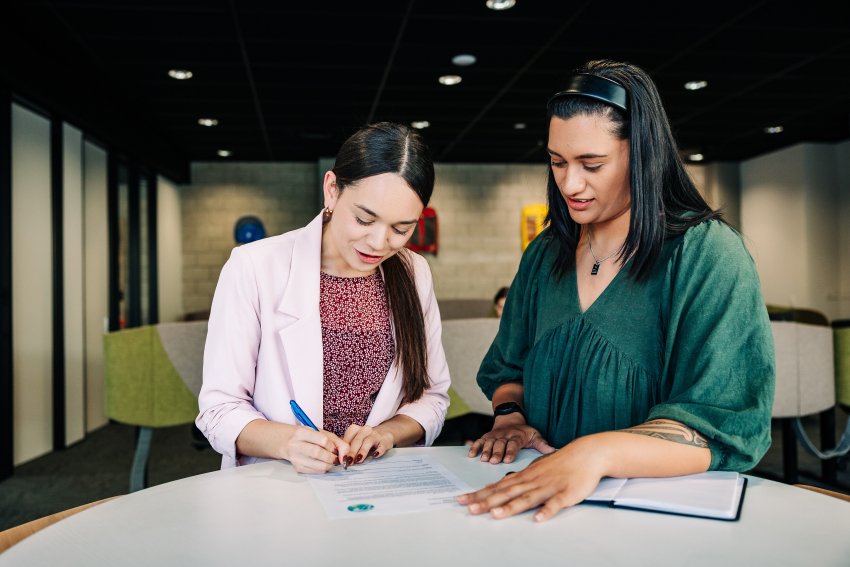Having career conversations that matter, Te whai kōrerorero aramahi e hira ana
Updated 12 Nov 2025
Career conversations are a helpful way to talk about work, study, training and life decisions. They can happen anywhere – at school, home, work or in the community.

What happens in a career conversationNgā mea e whai wāhi ana ki tētahi kōrerorero aramahi,
A career conversation is time spent talking with someone to explore where they may want to get to in their career and how they might get there.
It’s not a formal interview or review – it’s a space for reflection, curiosity and support.
Career conversations can happen in many situations. For young people this is often with parents and whānau, career advisers or teachers.
For older people career conversations may happen with whānau or friends, or through careers support or employment services.
Career conversations make a differenceHe whaitake ngā kōrerorero aramahi,
Recent work from the Organisation for Economic Co-operation and Development (OECD) shows that when young people have conversations with others about their careers, they:
- have lower levels of career uncertainty and anxiety
- feel supported through their transitions from school into work or study and training.
For older people who are moving into new employment or changing jobs, career conversations can help them:
- actively think through information and their options
- connect their choices to their values and everyday lives.
In a world of rapid change, with shifting work and learning opportunities and evolving personal priorities, career conversations offer a moment to pause and reflect. They can help people:
- clarify what matters to them
- identify strengths and interests
- consider new directions or feel positive about current ones
- feel seen, heard and supported.
How to have a positive career conversationMe pēhea te whakarite kia takatika te kōrerorero aramahi,
Often career conversations happen over time. They can be planned or unplanned, long or short. But regular check-ins are a good idea.
It’s important when having a career conversation to be:
- open-minded – the person listening should avoid assumptions or pushing a specific outcome. The conversation is about possibilities and exploring
- genuinely interested – it’s important to show care and curiosity about the other person’s goals, values and future. This builds trust and encourages honest reflection
- supportive – don’t prejudge or make assumptions about a person and their career ideas. Your goal is to support them through their journey, not lower their expectations.
Remember that not everyone is confident enough to talk about themselves or their future plans. Make it easy to engage and give people the chance to opt out if they want to and repeat the invitation for the future.
There are many ways to start a deliberate career conversation depending on where a person is on their journey.
Conversations with school studentsNgā kōrerorero ki ngā ākonga kura,
School students may still be exploring options and seeking information. You might like to start with open-ended reflective questions, like:
- What sparks your curiosity?
- What do you enjoy doing at school and out of school?
- What and who is important in your life?
Conversations with older peopleNgā kōrerorero ki ngā pakeke,
A career conversation with an older person may start with reflection on their life, including:
- what previous work they may have done
- whether previous work was enjoyable or fulfilling.
We have resources you can use to start meaningful career conversations. These include questions to ask.
ResourcesNgā rauemi,
Career conversations mapping to TahatūNgā kōrerorero aramahi e whakaatu hononga ana ki Tahatū,
Career conversations mapping to Tahatū gives you questions you may like to ask, with links to supporting tools and resources on Tahatū Career Navigator to help you further explore or clarify responses.
Meaningful career conversationsNgā kōrerorero aramahi whaihua,
Meaningful career conversations focuses on cultural and hope-based conversations that help to uncover strengths, interests and goals.
Career conversation startersHe tīmatanga kōrerorero aramahi,
Career conversation starters allows students to reflect on their interests, skills and career options in a safe and guided way.
Find out moreAko atu,
Tahatū resources that support career conversations.